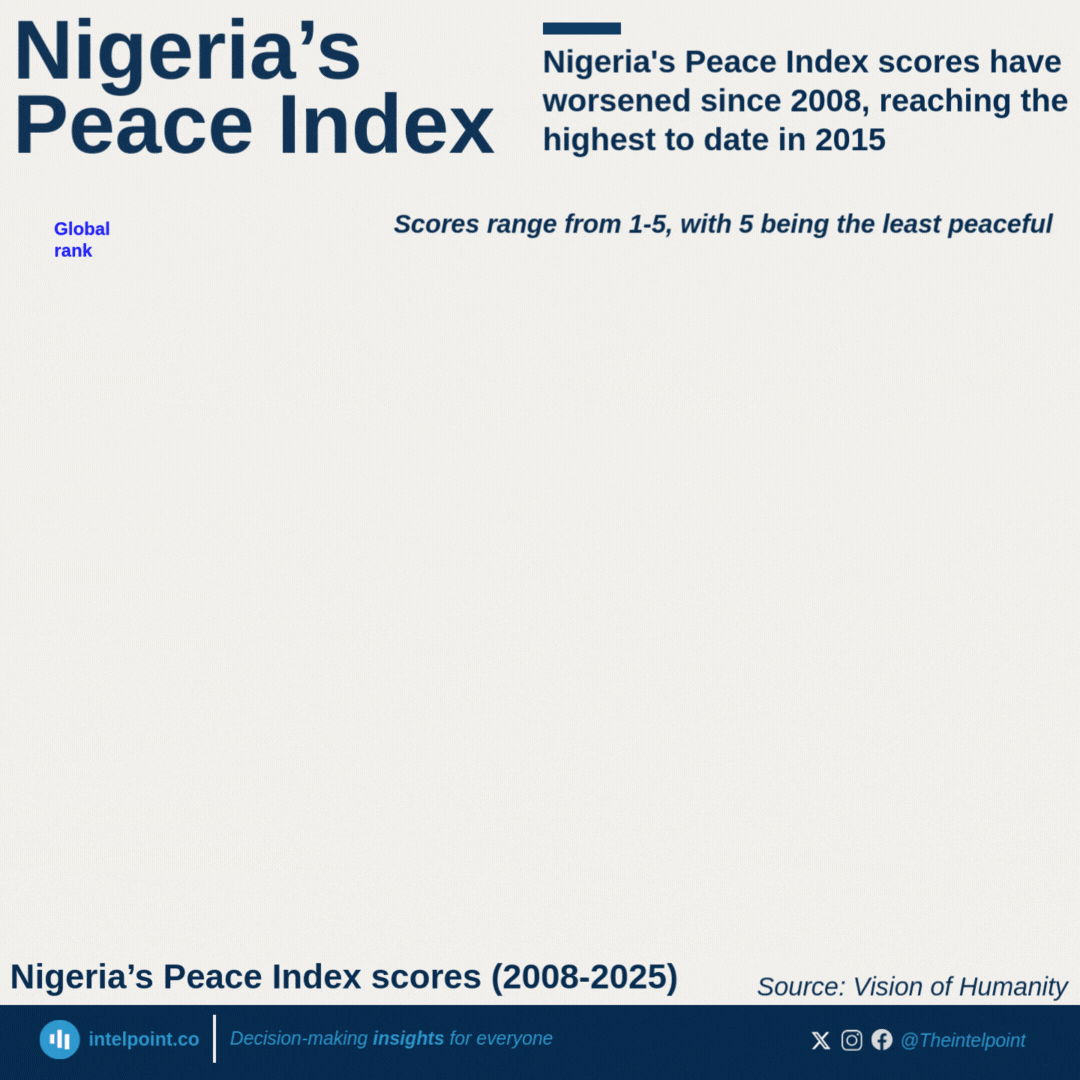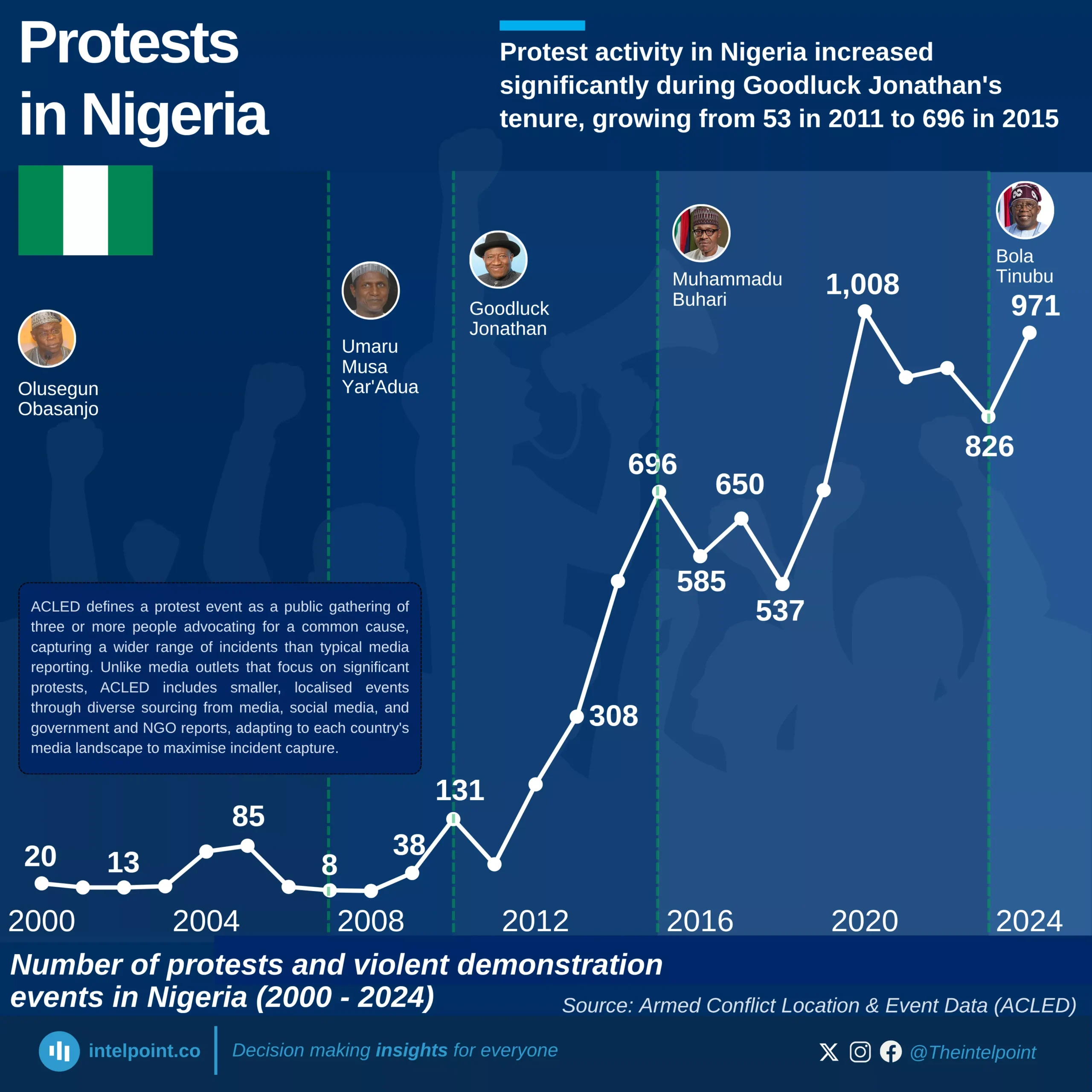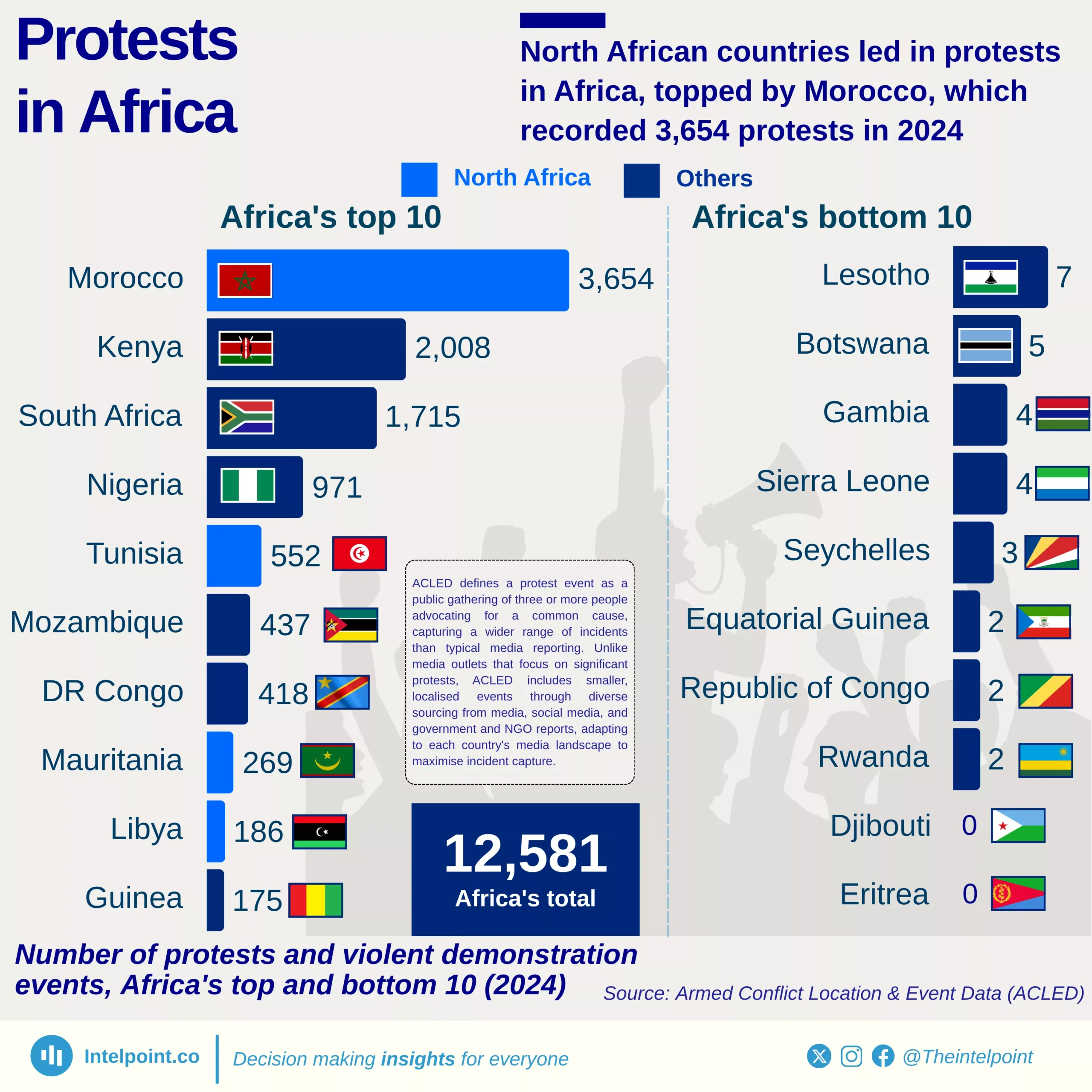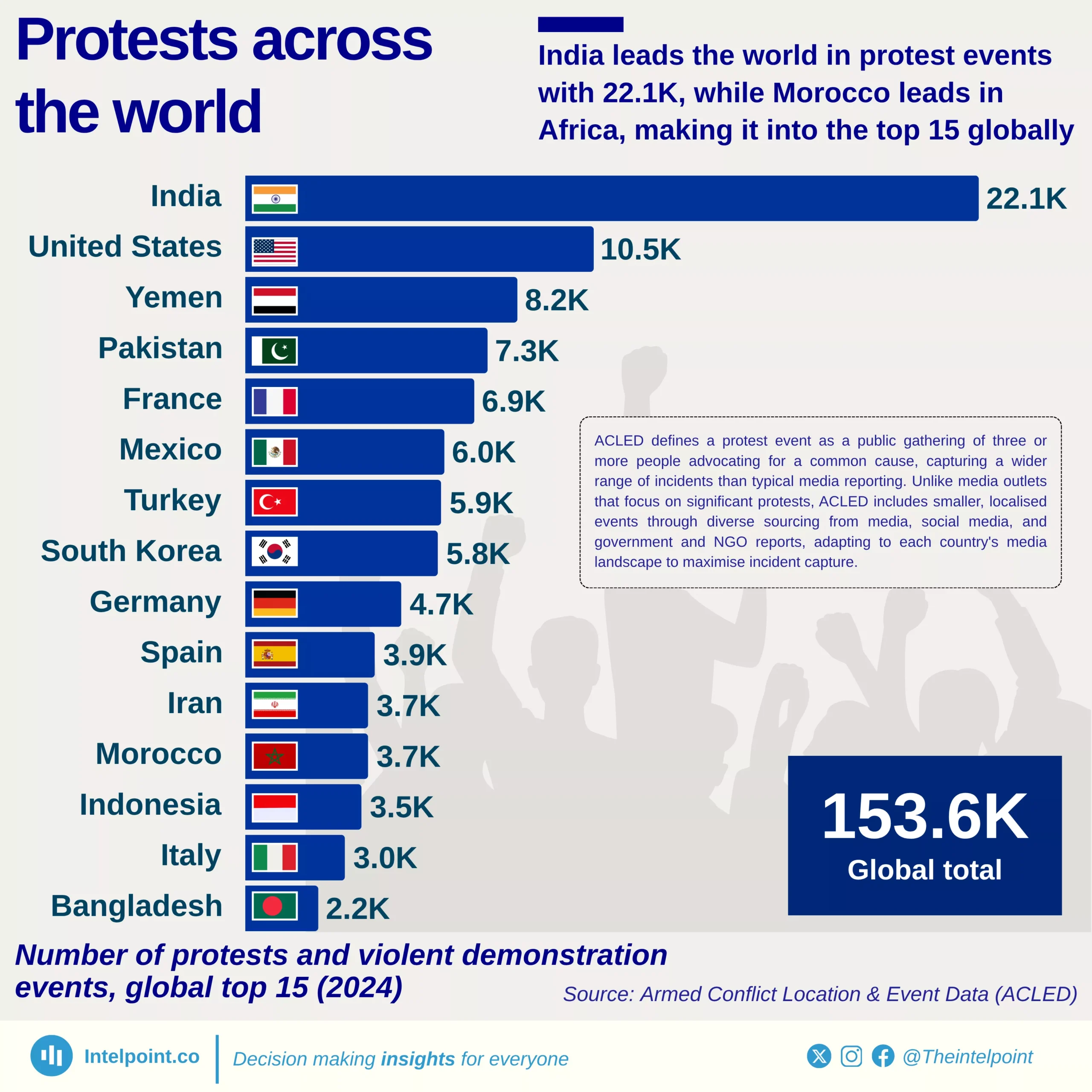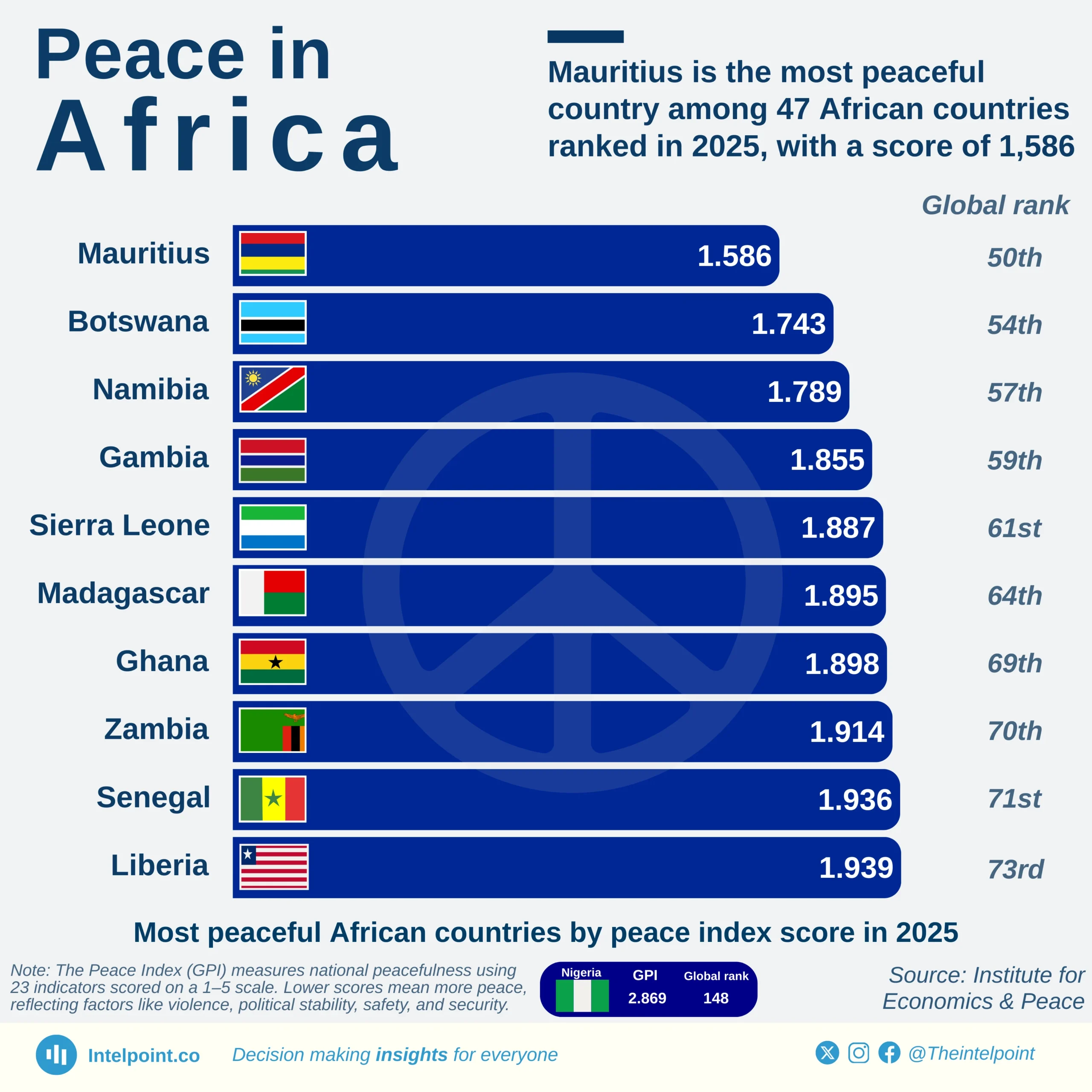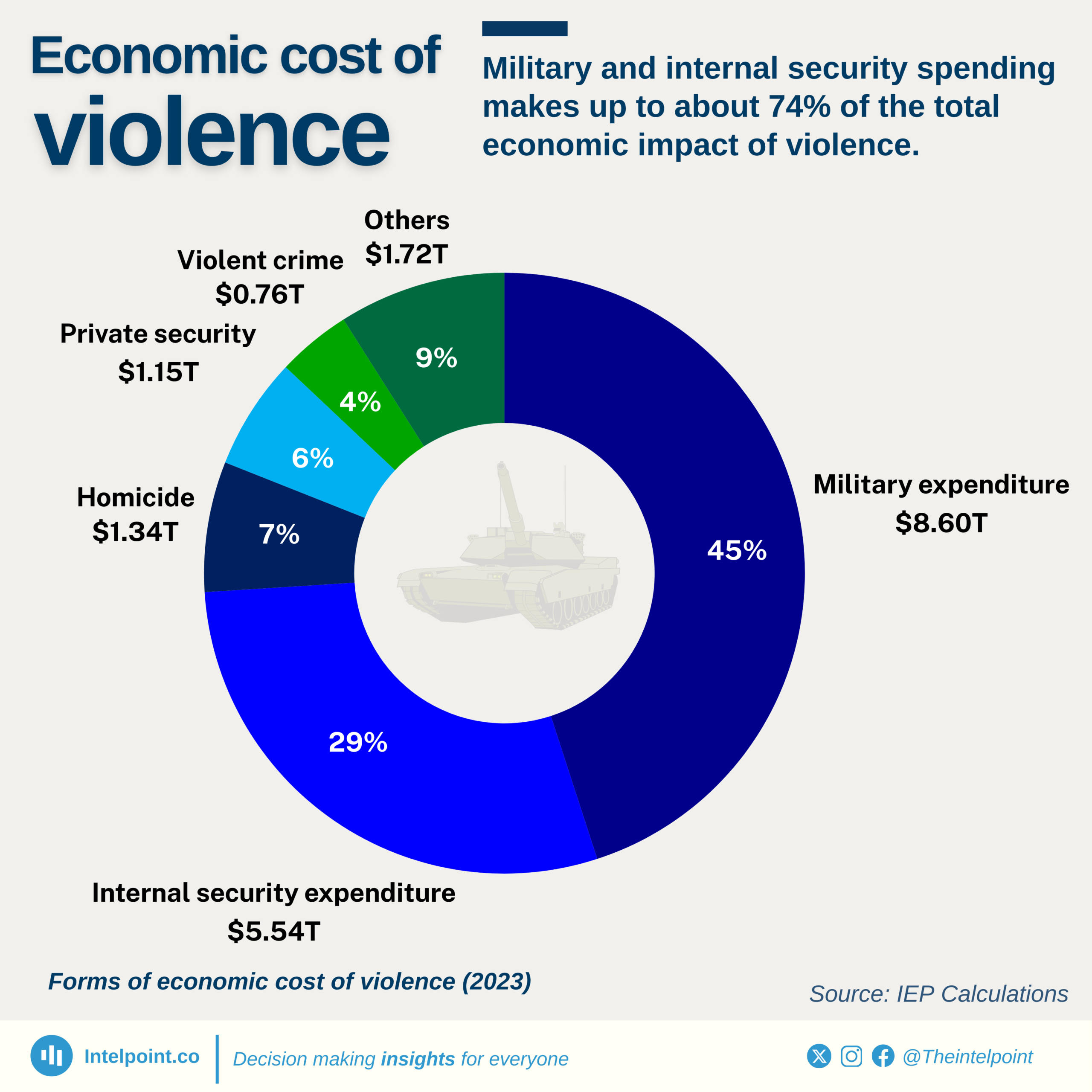Kenya witnessed an unprecedented surge in civic unrest in 2024, recording 2,008 protest and violent demonstration events, a dramatic seven-fold increase from the 239 protests documented just three years earlier. The data highlights a striking escalation in public dissent under President William Ruto’s administration, signalling growing frustration over economic pressures, governance issues, and widening social discontent. While Kenya has long been known for its vibrant democracy, this level of mobilisation reflects a deeper undercurrent of public unease not seen in decades.
Protest activity in Kenya remained relatively moderate through the early 2000s, fluctuating between 40 and 150 incidents under Daniel arap Moi and Mwai Kibaki. Even during politically tense transitions, such as the 2007–2008 post-election crisis or Uhuru Kenyatta’s administration, protest levels did not approach recent levels. The sharp climb began after 2022, coinciding with growing public opposition to government fiscal policies, rising cost of living, and tax reforms that hit the middle and lower classes the hardest.
